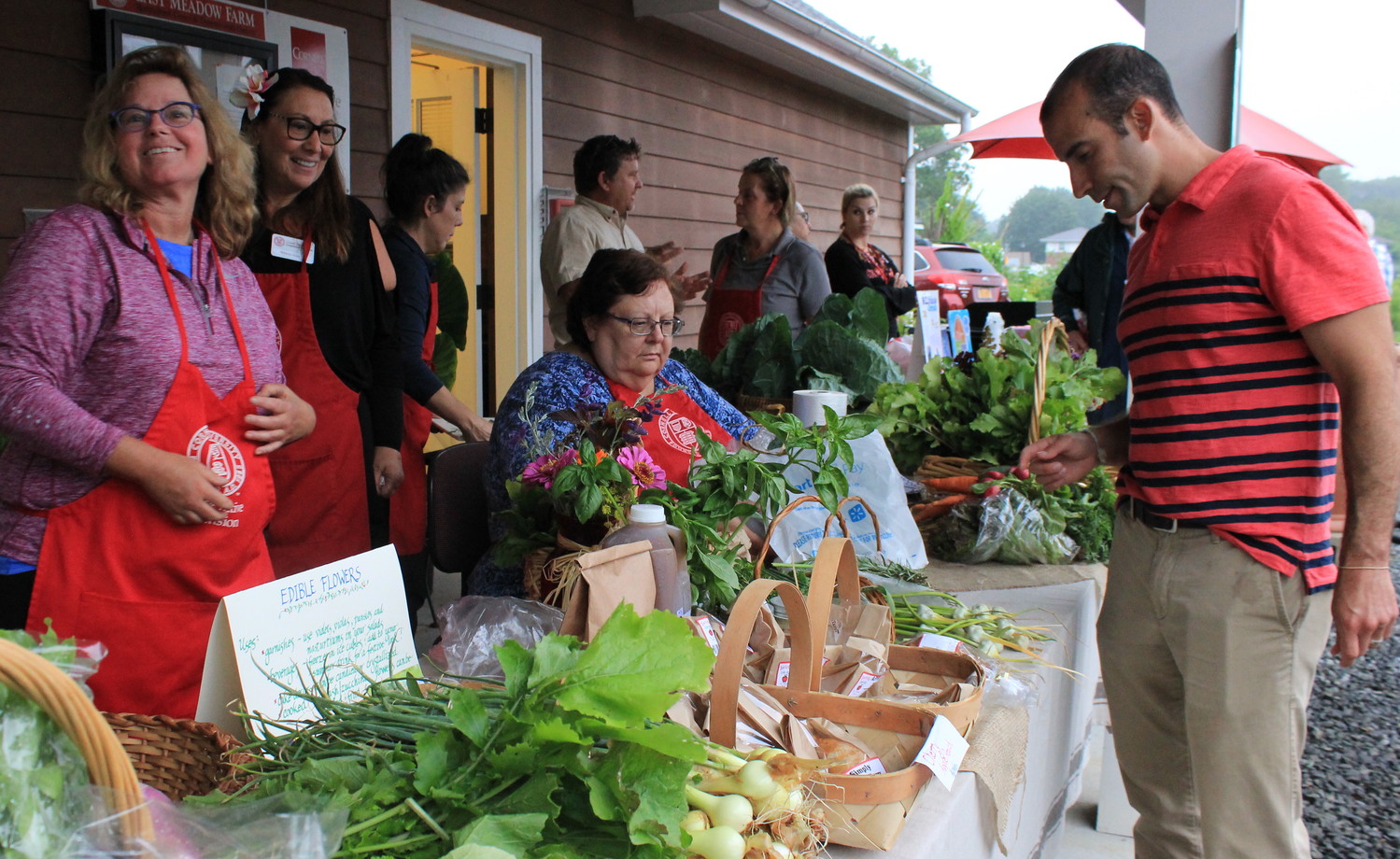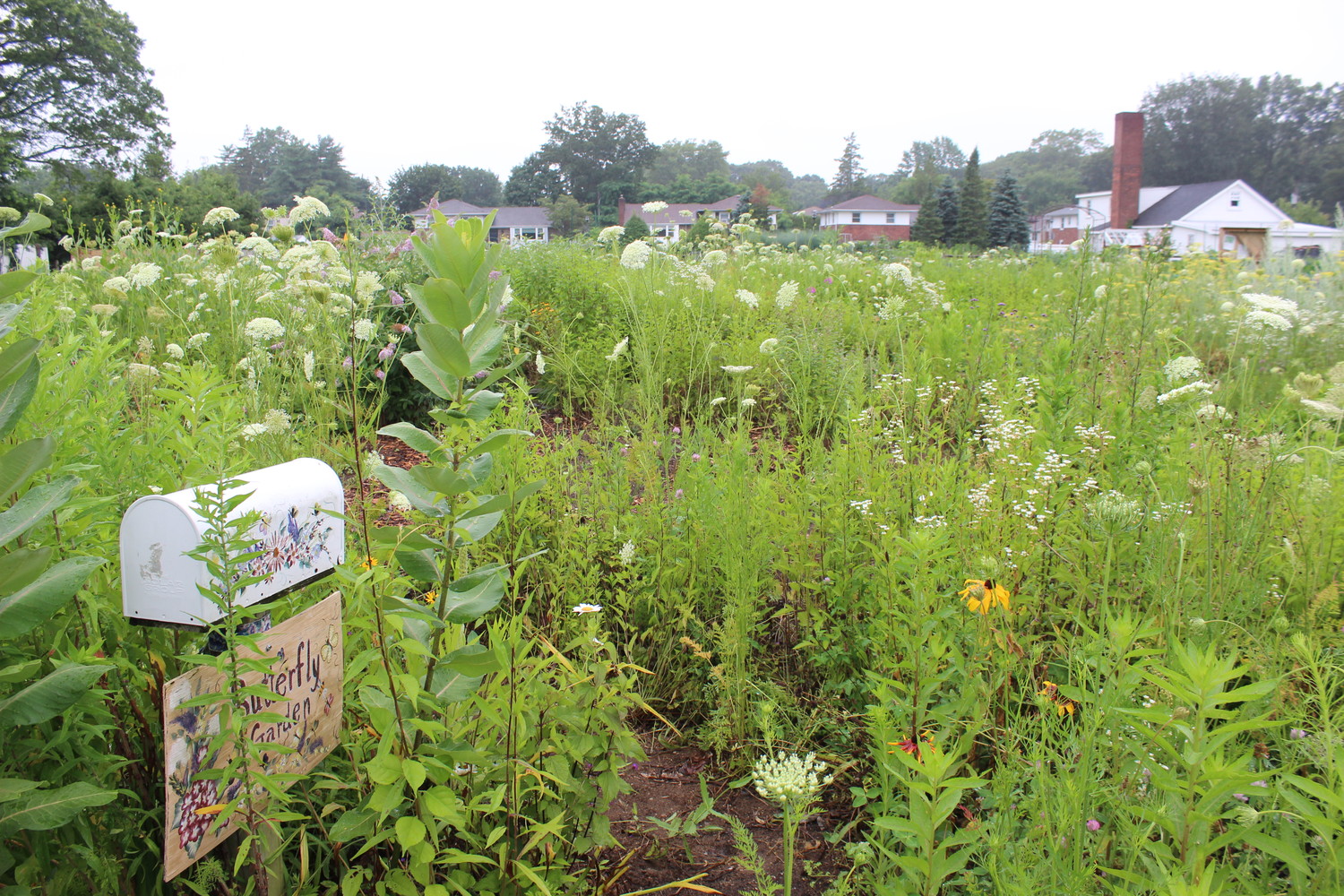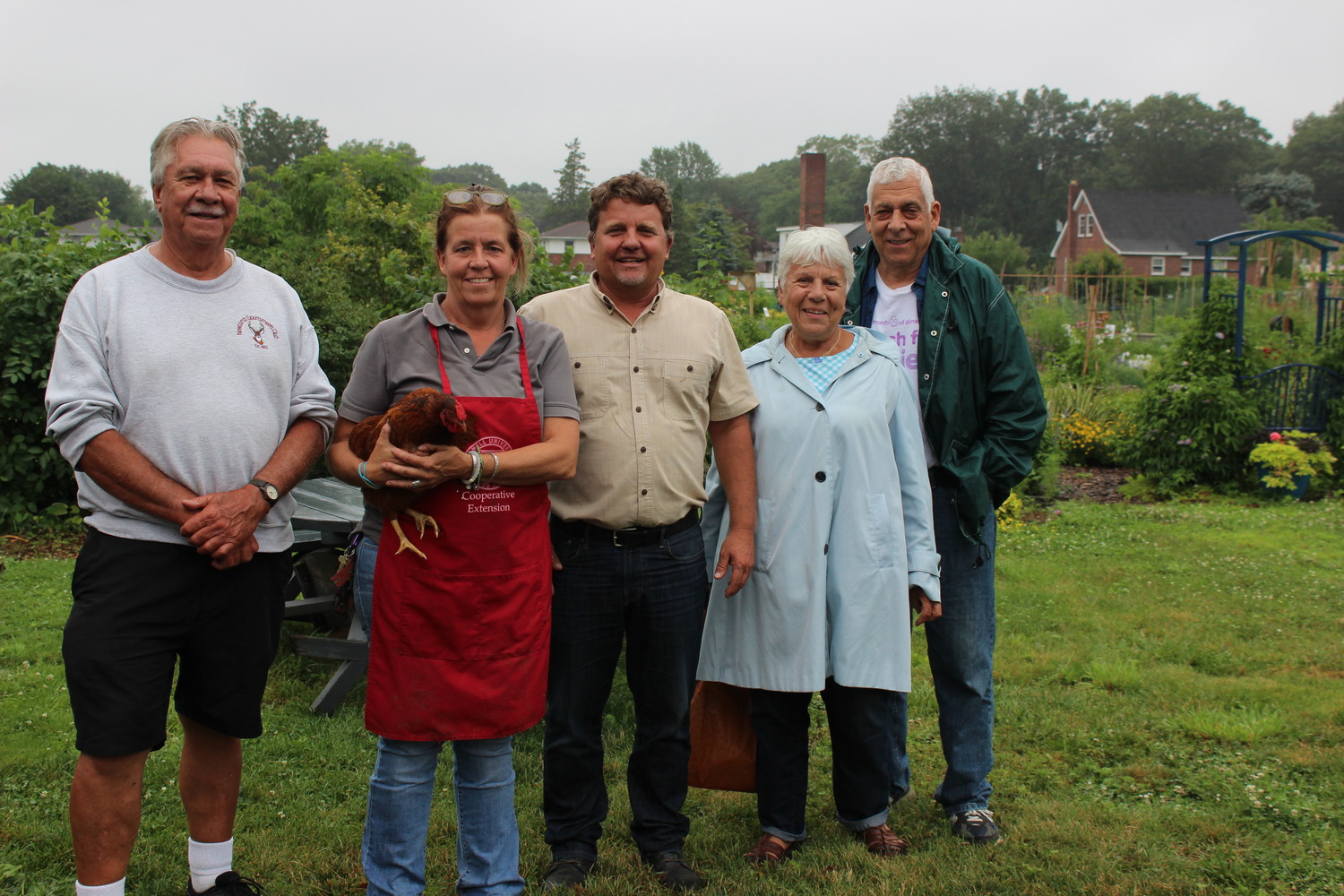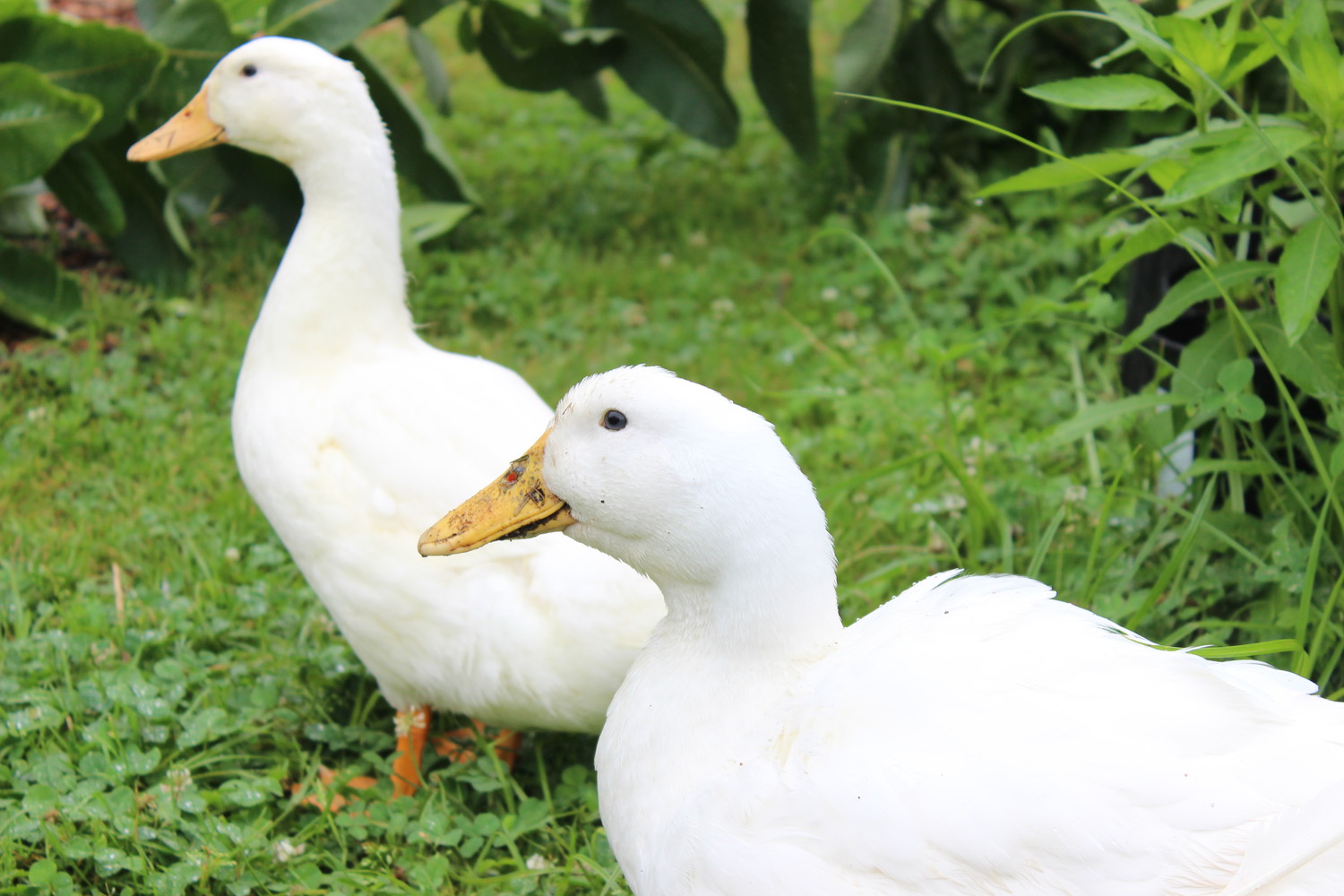East Meadow's Farm stand opens for the season
Horticulture Center and Demonstration Gardens offers fresh produce
Two ducks and three hens weaved in and out of vegetable gardens, rows of herbs and fields of flowers in East Meadow’s 2½-acre Horticulture Center and Demonstration Gardens on Merrick Avenue.
“We call the chickens the ladies,” said Jennifer Cappello-Ruggiero, lead horticulturist and educator at Cornell Cooperative Extension of Nassau County’s East Meadow Farm. The farm, which is part of the statewide CEE program, aims to educate the community on ecologically minded ways to maintain vegetation and agriculture.
“We also have two ducks, Rosa and Tilly,” Cappello-Ruggiero continued. “They’re free-roaming. They all help keep insects off the plants. Oh, look!” She pointed to Tilly, the plumper of the two, who was answering the call of nature. “They also help fertilize the soil,” she laughed.
East Meadow’s farm is marking its fifth year, and Cappello-Ruggiero, of Baldwin, said that horticulture is becoming more popular in the community, and beyond. To kick off the summer season, the farm opened its annual farm stand last Friday. Boxes of locally, and organically, grown plants and vegetables, from radishes to garlic to carrots, will be on sale every Friday from 3 to 6 p.m. and Saturday from 9 a.m. to noon until Oct. 13.
“We don’t use any pesticides or harmful chemicals,” said lead gardener Charlie Kemnitzer, who heads the facility’s vegetable committee. “Everything here is as organic as it can be.”
Kemnitzer, of Merrick, who planted several plots of vegetables, flowers and herbs himself, said that the fastest-growing vegetables on the farm are tomatoes. He experiments with several different ways of growing tomatoes each year, using only string, wooden posts and wire. He also harvests squash, string beans, carrots, peppers and cucumbers.
In the Children’s Education Garden, 60 community garden plots boast an array of vegetation. Any Nassau County resident can rent a plot, plant a garden and use any educational tool the farm has to offer.
“These gardens are for people who live in apartment complexes or have limited access to soil in their homes,” Kemnitzer explained. “People really enjoy coming out here to garden, because they see how our professional volunteer gardeners plant flowers and vegetables, and they sort of mimic what they do. And without knowing it, they learn the basics of gardening, which they then can pass on to friends or family.”
Matt Blackstone, of East Meadow, said he had waited a year to rent a plot on the farm. This year he finally had the chance to get his hands dirty and plant vegetables with his 3-year-old. “I was really excited when we finally were taken off the wait list,” he said. “So far, we’ve grown huge zucchinis. We’re really excited to see what else pops up throughout the summer.”
As he sifted through the farm stand’s selection of carrots, Blackstone chatted with volunteer master gardeners Karen Rose and Robbie Gluck, both of Merrick. The pair enrolled in the farm’s Master Gardeners course, held twice a yearly, in which participants become skilled horticulturists.
“The class was truly amazing,” Gluck said. “It’s a hands-on learning experience. We learned about sustainability and gardening, but the most important lesson was learning how a garden builds a community.”
The farm features a butterfly garden, to increase cross-pollination; a flower garden, which hosts dahlias and roses; and a beekeeping program, which educates the public on the importance of preserving bees. Larry Berger, president of the Cornell Cooperative Extension board of directors, said that the farm’s goal is to educate the public while offering high-quality produce.
“Every single thing on this farm is sustainable,” Berger said. “The veggies in the community garden are donated to the farm by my community members when they have an excess amount. If it’s not sold, then it’s composted.”
“Or fed to the chickens and ducks,” Cappello-Ruggiero added with a laugh. “We offer compost and pollination demonstrations, and our volunteer gardeners do PowerPoint presentations at schools.”
So far, Cappello-Ruggiero said, she has visited schools in Valley Stream, Baldwin and Freeport, and she noted that more schools would be added to the list.
“We want the community to come down and buy local veggies and use us as resources,” said JoAnn Flora, a volunteer from East Rockaway. “And we want them to come say hello to the ladies and the ducks!”
“They don’t bite,” Cappello-Ruggiero added. “They just fertilize.”
The East Meadow farm is open to the public on Tuesdays, Wednesdays, Thursdays and Saturdays from 10 a.m. to 1 p.m. and Thursday evenings from 4 to 7 p.m. For more information, visit www.ccenassau.org or call the farm at (516) 565-5265.













